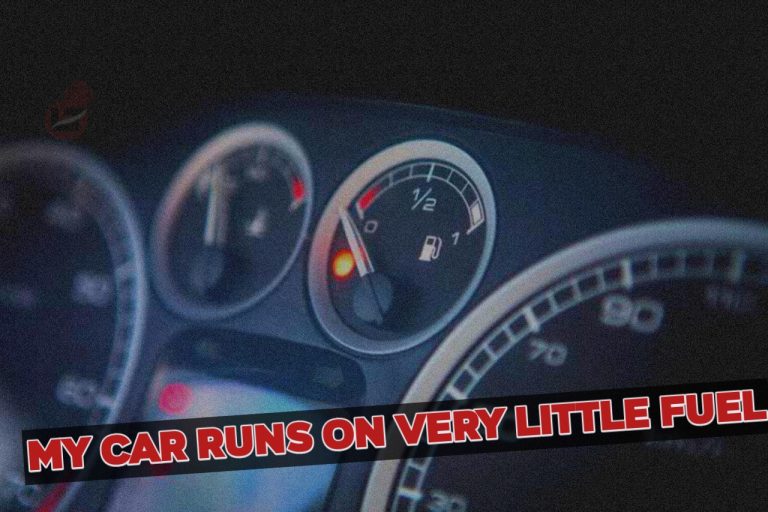If your car runs on very little fuel, it’s likely a configuration setting on the fuel pump, or the fuel pump is faulty.
In previous articles, we’ve discussed the danger of driving on empty, and here we’ll tell you the pros and cons of running on little or empty tanks.
By default, the fuel pump is installed inside the gas tank to aid fuel injection, and the fuel, in turn, prevents the fuel pump from overheating.
If your car’s gasoline level becomes low, it loses its ability to cool the fuel pump, thereby decreasing the pump’s lifespan.
While your car will run perfectly due to the pickup pipe at the bottom of the tank, dirt and sediments accumulated there will likely flow into the engine, causing blockage or seizure.
So, if you find that your car is running low on fuel, quickly pull over and refill your tank if possible. You can check out our article on how many miles I can drive on empty.
Let’s see the effects of running your car on little fuel without wasting time.
My Car Runs on Very Little Fuel – The Demerits
Car experts recommend keeping your fuel level at least ¼ of the total fuel content.
Running on little fuel can damage the fuel pump and cause sediments at the bottom of the fuel tank to get into the injectors and converters, resulting in seizures.
Here are some disadvantages that come with running on little gasoline.
1. Engine Misfires
Due to inadequate air/fuel mixture getting into the combustion chamber, the engine will likely misfire, making driving uneasy.
Water particles that have settled at the bottom of the tank can also flow into the engine, causing several damages.
This is also accompanied by vibrations, stalling, and possible loss of engine power. The best way to avoid this is to ensure enough gasoline.
2. Clogged Fuel Filter
Like the oil filter, the fuel filter helps filtrate the fuel into the engine, causing dirt particles or sediments.
Since the fuel source is coming from the bottom of the tank, where dirt has settled, it’ll likely carry many of these contaminants along with it.
This will result in a clogged fuel filter in no time.
3. Damaged Fuel Pumps
This doesn’t apply to older carbureted cars that use mechanical fuel pumps; modern vehicles with the fuel pump inside the gas tank are likely to encounter this.
Gasoline helps regulate the temperature of the fuel pumps; if you let the fuel level exceed the gas mark, you’re endangering your fuel pump.
4. Rust Gas Tank
If you often drive your car on little fuel, the upper parts of the gas tank will start to rust over time.
The fuel helps in keeping the gas tank fresh and alive.
5. Clogged Fuel Injector
Substituents that get past the fuel filter will likely come to the fuel injectors and could clog it over time.
6. Leaves you stranded
Running your car on little fuel, especially for a long-distance journey, is risky because the vehicle can stop anytime, leaving you stranded.
This will serve as a time waster, and if you’re unlucky, the car can also stop at a dangerous spot.
That’s all.
While some cars are built to run on very little fuel, it’s advised that you always keep your gas tank total quarterly.
FAQs
As an Amazon Service LLC Program Associate, V. Auto Basics earns from qualifying purchases. See Our Affiliate disclaimer.
